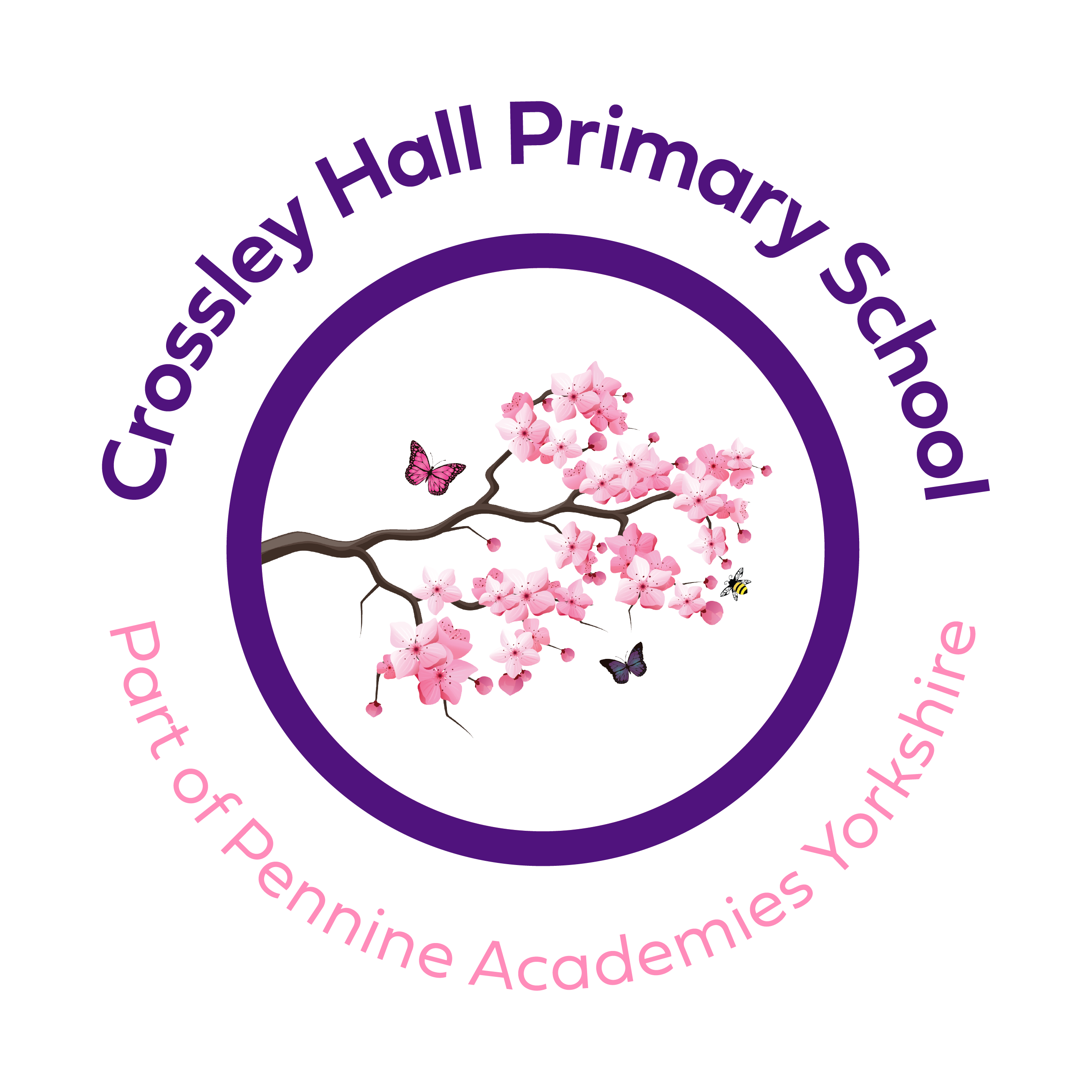Resource Provision
What is the Resourced Provision?
Crossley Hall Primary School School Led Resourced Provision (RP-SL) is a 24 place provision for children with Communication and Interaction Needs including Autism. The pupils who access the RP-SL will have an Education, Health and Care Plan (EHCP) in place and primary need within Section B of the EHCP typically will be identified as Speech, Language and Communication Needs (SLCN) or Autism Spectrum Condition (ASC).
Our Provision:
We have three specialist teachers and a team of trained learning support assistants who support individuals both with mainstream lessons and within the RP-SL. All classrooms and group rooms use stimulating, effective and appropriate visual displays and resources which seek to enhance the learning of all our pupils. We aim for all our children to: become independent learners, develop their self-awareness and ultimately, be able to self-regulate their emotions and manage their behavioural responses.
The primary purpose of the RP-SL is to enable children to attend the mainstream classroom lessons to learn alongside peers and also access the RP-SL for bespoke, personalised specialist interventions. We promote a flexible approach based on the needs of the individual pupil and all pupils placed within the RP-SL have a personalised timetable to ensure inclusivity to the highest degree.
Supporting our pupils:
Pupils access teaching and learning which is enhanced through evidence based approaches such as:
- TEACHH principles
- Total Communication Approaches
- Intensive Interactions
- Use of visual aids including social Stories and comic strip conversations
- Objects of reference
- PECS
The well-being, safety, security and happiness of our pupils is key to developing confident young people. Alongside support for learning, staff support pupils through their emotional and social experiences as they grow. Staff are skilled and trained in understanding and supporting pupils through such strategies as emotion coaching. Pupils’ voices and views are regularly sought through a variety of activities in order to develop and improve their educational and emotional experiences in the way that they would like.
We also have termly access to support from a Specialist Speech and Language Therapist from the Bradford SALT Team. Pupils are referred by the setting to ensure that there is up to date and relevant information leading to aspirational outcomes being drafted.
Parental involvement:
Parents of pupils within the RP-SL are provided with regular feedback, opportunities to join pupils for tailored sessions within the setting and are signposted to additional support which may be available through external agencies.
Admission to the Resourced Provision
Admission to the RP-SL at Crossley Hall Primary School relies on the individual pupil having an Education, Health and Care Plan (EHCP) in place. This is sent to the setting via the Local Authority as part of the consultation process once parents/carers have stated preferences either at draft stage or within an annual review.
It is crucial that parents/carers state that they wish for the consultation to be sent to Crossley Hall Primary School Resourced Provision, otherwise this will lead to a mainstream consultation being issued.
Unless a child has an EHCP in place which states Resource Provision placement within Section I, pupils are not able to access the Resource Provision whilst admitted to Crossley Hall Primary School as a mainstream pupil.
Curriculum Provision
The needs and abilities of individual pupils are clearly identified, through a range of assessments and observations, in order to place them in the most appropriate learning environment within school.
Based on individual needs, pupils are able to access the National Curriculum, either within their mainstream classroom or within a classroom within the RP-SL, and are supported to do so through specific adaptations to their tasks, timetable or supporting resources. Where pupils are not able to access learning linked to National Curriculum outcomes, the setting utilises the Engagement Model and additional assessment tools such as the Autism strand on B-Squared.
Most pupils spend some or all of their time within the mainstream class in the afternoons for Wider Curriculum opportunities. These pupils are again supported by staff from within the RP-SL. If it is considered appropriate, then pupils may also be withdrawn from class in the afternoon in order that the curriculum can be more closely matched to their learning needs within a smaller group.
The placement of pupils remains flexible and is regularly reviewed in order to make changes with regards to the placement and grouping of individuals where their needs may have changed. All RP-SL pupils remain an integral part of their mainstream classes and are fully involved in wider learning through such things as visitors in school and educational visits to other places
Enhanced Opportunities
The Resourced Provision is committed to providing all pupils with opportunities and experiences which will enhance and extend their learning and develop their social and emotional well-being in order for them to become confident, successful and well- rounded individuals.
Assessment
A clear and precise monitoring system to assess, needs, outcomes, and to inform and monitor support and progress
Baseline assessment protocols are in place for new RP-SL pupils
Assessments are carried out in line with school systems and procedures, at appropriate levels for individual pupils
Specialist speech and language assessments are used to monitor progress and set new targets in collaboration with the Specialist Speech and Language Therapist.
Modification to the presentation of assessments, where appropriate
Assessment by education and non-education professionals as appropriate e.g. Educational Psychologists
Visits
Educational visits are seen as an important extension of both the curriculum and the wider aspects of learning in order to provide ‘real-life’ experiences for our pupils. We ensure that every child has the opportunity to attend educational visits with peers irrespective of their presenting SEND.








